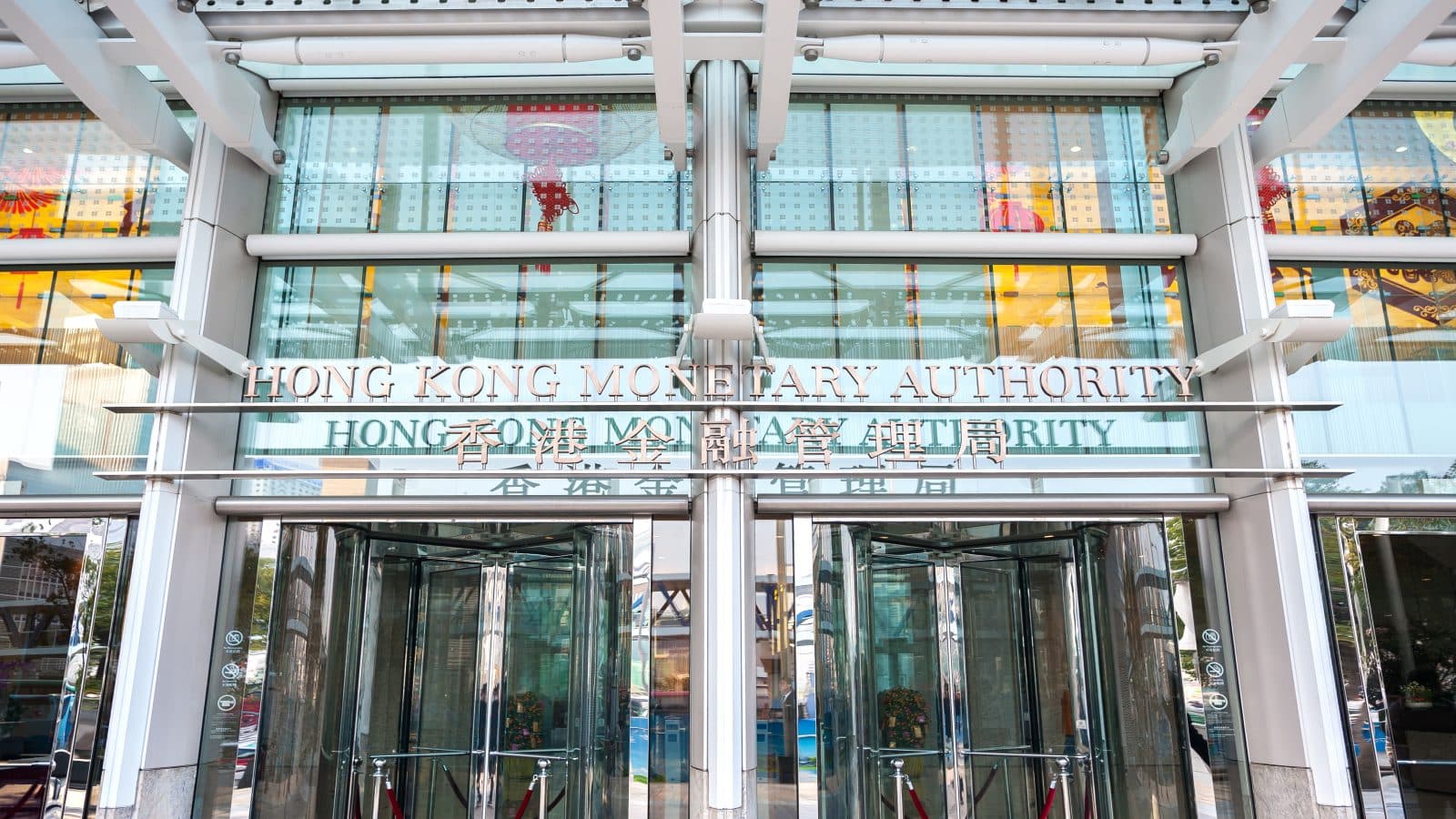Hong Kong Seeks Feedback on ‘Risk-Based’ Approach to Crypto, Stablecoin Regulation
Hong Kong’s central bank is seeking public feedback on its intended regulation of payment-related stablecoins.

Hong Kong Monetary Authority. Front entrance of Two IFC skyscraper, Hong Kong. Credit: Shutterstock
- The Hong Kong Monetary Authority is seeking feedback from the public on how it should regulate cryptocurrencies and stablecoins
- The banking authority is considering a risk-based approach to payments-related stablecoins, which it deems as a risk to financial stability
Hong Kong’s central bank is seeking feedback from the public on new regulatory measures aimed at curbing what it calls “material risks to financial stability” posed by cryptocurrencies and stablecoins.
The Hong Kong Monetary Authority (HKMA), the country’s central banking institution, released its discussion paper on Wednesday outlining its stance “in the face of growing adoption” of the nascent asset class.
The paper claims the current market size and trading activity, from a systemic viewpoint, does not pose “an immediate threat” to the global financial system.
The bank does recognize, though, the increase in institutional adoption of crypto — as an alternative or complement to that of traditional asset classes — represents an intensifying bond with mainstream finance.
In May 2021, Hong Kong announced it would be implementing a licensing regime aimed at virtual asset service providers, or VASPs, by amending its existing anti-money laundering and counter-terrorism laws.
Those changes are in line with the intergovernmental agency Financial Action Task Force’s (FATF) request that financial entities and crypto business services dealing in crypto be regulated under a “risk-based approach.”
It is from the FATF that Hong Kong is drawing up further regulatory measures while seeking to balance financial innovation against regulating illicit activity, per the paper.
Stablecoins
HKMA’s concerns mainly center on “payments-related stablecoins,” which it deems a risk that if left unchecked has the potential to severely undermine public confidence in its ability to monitor and regulate.
Stablecoins are types of cryptocurrencies whose values are generally pegged to certain commodities, such as gold or traditional currencies like the US dollar. Their use for payments within certain circles has continued to grow since their inception in 2014 and began being picked up in earnest by late 2017. There are $172 billion in stablecoins circulating today, according to CoinGecko.
“The rapid development of crypto-assets, particularly stablecoins, is a topic of keen attention in the international regulatory community as it presents possible risks regarding monetary and financial stability,” said HKMA’s chief Eddie Yue in a statement on Wednesday.
The bank’s paper identifies ten major areas of concern stablecoins pose, including disrupting payment integrity, banking stability, creating a currency substitution and causing settlement risks, among others.
In response, HKMA will seek to “apply regulation to tackle the key risks” that it classifies as being posed by these types of crypto assets and is now seeking to gauge public feedback.
“We look forward to hearing the feedback from stakeholders and will draw up a risk-based, pragmatic and agile regulatory regime on this front,” said Yue.
Members of the public and the industry have been invited to submit their responses by email no later than March 31.
Get the news in your inbox. Explore Blockworks newsletters:
- The Breakdown: Decoding crypto and the markets. Daily.
- 0xResearch: Alpha in your inbox. Think like an analyst.






